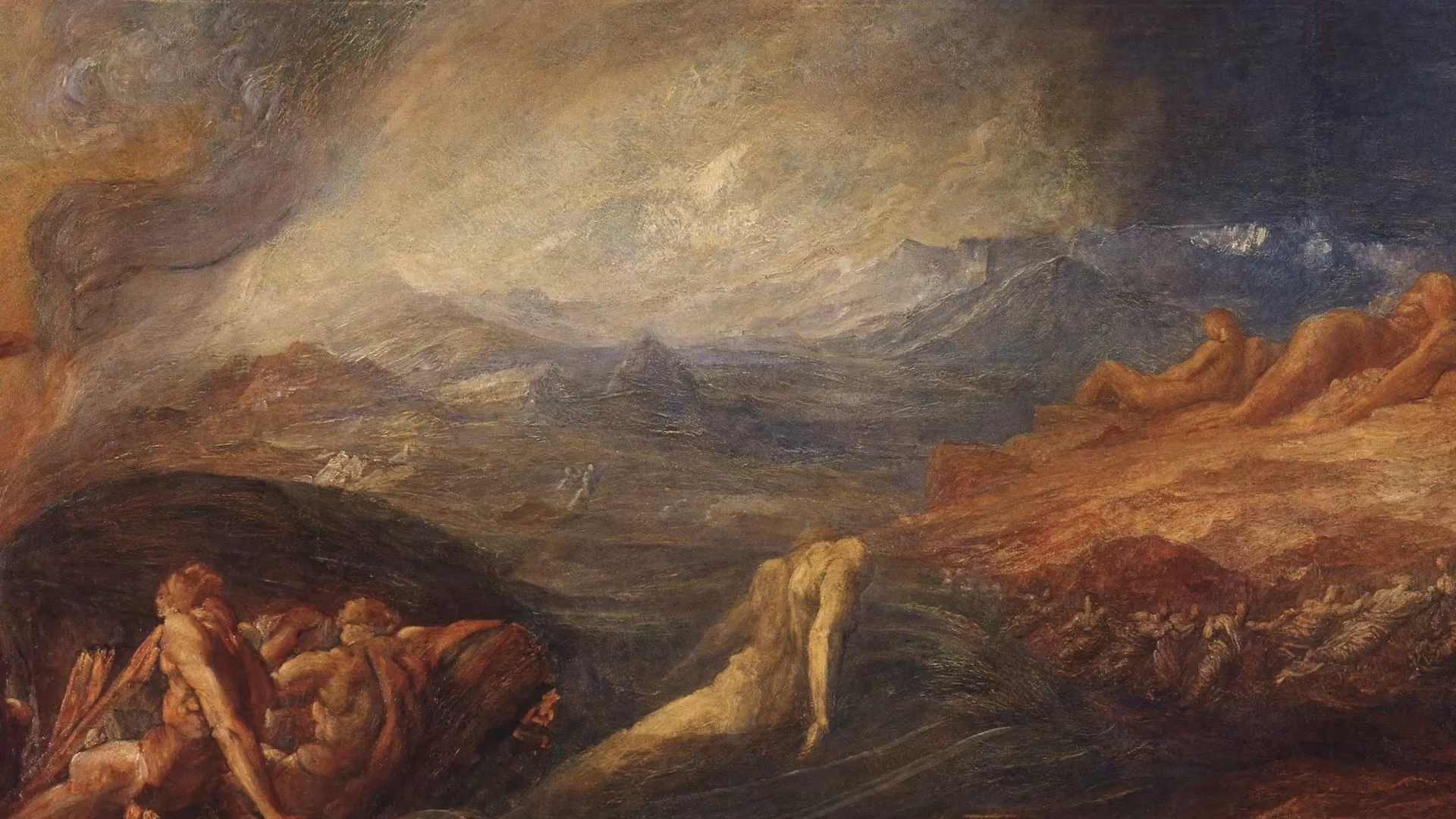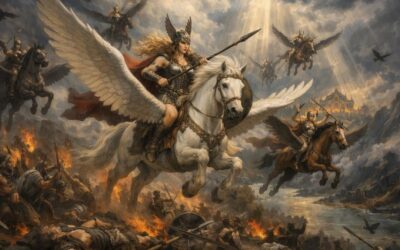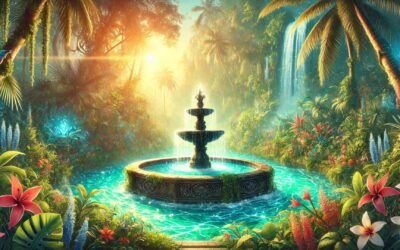- Keywords
- Key Takeaways
- Frequently Asked Questions (FAQs)
- Who were the children of Cronus and Rhea?
- What is the significance of Mount Olympus in Greek mythology?
- How did the ancient Greeks use these myths to explain natural phenomena?
- Are there different versions of these myths?
- How do these myths relate to Greek religion and worship?
- Did the Greeks believe these myths as literal truth?
- How did Zeus release his siblings from Cronus?
- What happened to the Titans after their defeat?
- Are there myths about the creation of humans in Greek mythology?
- How do Greek myths influence modern culture?
- Myth Buster
- Myth: The Greek gods were always just and fair.
- Myth: Titans are inherently evil.
- Myth: Greek myths are uniform and consistent.
- Myth: Ancient Greeks believed in their myths literally.
- Myth: Zeus was always a noble and kind ruler.
- Myth: All Titans were banished after the Titanomachy.
- Myth: The Greeks were the only culture with creation myths.
- Myth: Greek gods and goddesses are omnipotent.
- Myth: Hades is the Greek equivalent of the devil.
- Myth: The Olympians were always a united front.
In the beginning, there was nothing but an endless void, a swirling miasma of chaos and potential. It is here, in the vast expanse of nothingness, that our story of the Greek Cosmogony begins. A tale so ancient and profound, it has echoed through the ages, shaping the very foundation of Greek mythology. As we embark on this journey through time and legend, prepare to be swept away by a narrative rich in drama, power struggles, and the eternal quest for dominance in the celestial hierarchy.
Our tale unfolds with Chaos, the very first of all beings, a primordial deity embodying the void from which everything emerged. From Chaos came Gaia, the Earth Mother, representing the solid ground beneath our feet, and Uranus, the embodiment of the sky. Their union produced the Titans, mighty beings of incredible power, setting the stage for a saga of betrayal, revenge, and the cyclical nature of power. Among these Titans were Cronus and Rhea, key figures in the cosmic drama that would unfold.
As the Titans ruled, tension simmered beneath the surface. Cronus, having overthrown his own father Uranus, feared a similar fate at the hands of his offspring. This fear drove him to swallow his children, trapping them within him. However, Rhea, distressed by the loss of her children, devised a plan to save her youngest, Zeus. Hidden away and nurtured in secret, Zeus grew strong and wise, harboring a burning desire to rescue his siblings and challenge the tyrannical rule of his father.
The ensuing struggle, known as the Titanomachy, was a cataclysmic conflict that raged for a decade, pitting Zeus and his allies against Cronus and the Titans. The battles were fierce, reshaping the very landscape of the world, as gods and Titans unleashed their immense powers. The turning point came when Zeus released his siblings from Cronus, swelling the ranks of his forces with fresh power and determination.
The victory of Zeus and his siblings marked the end of the Titans’ reign and the beginning of a new era, with the Olympian gods ascending to power. Zeus, now the king of gods, along with his brothers Poseidon and Hades, divided the cosmos among themselves, ruling over the heavens, the seas, and the underworld, respectively.
But the story of Greek Cosmogony does not end with the triumph of the Olympians. It is a narrative teeming with subplots, each adding layers to the rich tapestry of Greek mythology. From the creation of mankind to the birth of other deities and mythical creatures, each element intertwines to form a complex and captivating story of creation and existence.
The Greek Cosmogony offers more than just a tale of gods and Titans. It provides a glimpse into the ancient Greek understanding of the world, where every natural phenomenon, every emotion, and every aspect of life is personified and revered. It speaks of a time when the lines between reality and myth were blurred, and the gods walked among mortals, influencing their lives and destinies.
As we delve deeper into the myths and legends of Greek Cosmogony, we find ourselves on a journey through a world where the impossible becomes possible, where heroes rise and fall, and where the legacy of the gods continues to resonate through the ages. This is a journey not just of learning but of experiencing the sheer magnificence and drama of a world crafted by the ancients, a world that continues to fascinate and inspire.
So, let us embark on this journey together, exploring the depths of Greek mythology and uncovering the secrets of the cosmos as told by the ancient Greeks. For in these stories lie not just the echoes of a distant past but the enduring lessons and insights that continue to shape our understanding of the world and our place within it.
Keywords
- Greek Cosmogony: The body of myths in ancient Greek culture concerning the origins and creation of the world and the gods.
- Chaos: In Greek mythology, the initial void state or the gap created at the beginning of the universe, often personified as a deity.
- Gaia: The personification of Earth in Greek mythology and one of the primordial deities born from Chaos.
- Uranus: The personification of the sky and a primordial deity in Greek mythology, often depicted as the father of the Titans.
- Titans: A race of powerful deities that ruled during the legendary Golden Age in Greek mythology, preceding the Olympian gods.
- Cronus: A leader among the Titans and father to several of the Olympians, known for overthrowing his father Uranus.
- Rhea: A Titaness in Greek mythology, wife of Cronus, and mother to many Olympians, including Zeus.
- Zeus: The king of the Olympian gods in Greek mythology, who led the overthrow of the Titans and established a new order.
- Titanomachy: The series of battles in Greek mythology fought between the Titans and the Olympians for control of the universe.
- Olympian Gods: The principal deities in Greek mythology who reside on Mount Olympus, including Zeus, Hera, Poseidon, and others.
Key Takeaways
- Origins of the Universe: The Greek Cosmogony describes the beginnings of the universe as emerging from a state of chaos or a void.
- Primordial Beings: Key primordial deities include Chaos, Gaia (Earth), and Uranus (Sky).
- Rise of the Titans: The Titans, born from Gaia and Uranus, were the first rulers of the cosmos.
- Cronus’ Fear and Tyranny: Cronus, fearing a prophecy of being overthrown by his offspring, swallowed his children, leading to conflict.
- Zeus’ Ascension and Rebellion: Zeus was hidden from Cronus, grew up, and led a rebellion against the Titans.
- The Titanomachy: This epic battle saw Zeus and his allies defeat the Titans, marking the end of their era.
- Division of the Cosmos: Post-Titanomachy, Zeus and his brothers divided the universe among themselves, with Zeus ruling the heavens.
- Mythological Depth: Greek Cosmogony intertwines various myths, including the creation of mankind and other deities.
- Cultural Significance: These myths reflect ancient Greek understanding of natural phenomena and life.
- Enduring Legacy: Greek mythology continues to offer insights and lessons relevant to the modern world.
Frequently Asked Questions (FAQs)
Who were the children of Cronus and Rhea?
The children of Cronus and Rhea were Hestia, Demeter, Hera, Hades, Poseidon, and Zeus. Each played a significant role in Greek mythology, with Zeus becoming the king of the gods.
What is the significance of Mount Olympus in Greek mythology?
Mount Olympus is the mythical home of the Olympian gods. It’s depicted as a paradisiacal place, residing above the clouds and removed from the mortal world.
How did the ancient Greeks use these myths to explain natural phenomena?
Ancient Greeks personified natural elements and phenomena as gods and myths. For example, earthquakes were attributed to Poseidon’s anger, explaining them in a way that was understandable and relatable to their worldview.
Are there different versions of these myths?
Yes, Greek myths often have multiple versions, reflecting the oral tradition of storytelling and regional differences in worship and belief.
How do these myths relate to Greek religion and worship?
These myths formed the backbone of ancient Greek religion, providing context for rituals, festivals, and the worship of gods and goddesses.
Did the Greeks believe these myths as literal truth?
The belief varied among individuals. Some may have taken them as literal, while others saw them as symbolic or allegorical stories to explain the mysteries of the universe.
How did Zeus release his siblings from Cronus?
With the help of Metis, Zeus gave Cronus a potion that made him vomit up his swallowed children, who were then able to join Zeus in the fight against the Titans.
What happened to the Titans after their defeat?
Many Titans were imprisoned in Tartarus, a deep abyss used as a dungeon. Some Titans, who were not involved in the battle, were spared and even granted realms to rule.
Are there myths about the creation of humans in Greek mythology?
Yes, one prominent myth is that of Prometheus creating humans from clay, and later stealing fire from the gods to give to humanity.
How do Greek myths influence modern culture?
Greek myths have profoundly influenced modern culture, evident in literature, art, language, and even modern psychological concepts like the Oedipus complex.
Myth Buster
Myth: The Greek gods were always just and fair.
Reality: Greek gods often displayed human-like flaws, including jealousy, vengeance, and pettiness.
Myth: Titans are inherently evil.
Reality: Titans were complex characters. Some were indeed cruel, but others, like Prometheus, were benefactors to humanity.
Myth: Greek myths are uniform and consistent.
Reality: Myths varied significantly across regions and over time, reflecting the diverse and evolving nature of Greek culture.
Myth: Ancient Greeks believed in their myths literally.
Reality: Belief varied, with some viewing myths as allegorical or symbolic rather than literal truths.
Myth: Zeus was always a noble and kind ruler.
Reality: Zeus’s actions in myths often included deceit, infidelity, and wrath, reflecting complex morality tales rather than a purely virtuous character.
Myth: All Titans were banished after the Titanomachy.
Reality: Not all Titans were banished; some like Oceanus remained neutral and were not punished.
Myth: The Greeks were the only culture with creation myths.
Reality: Most ancient cultures have their own creation myths, many with parallels to Greek stories.
Myth: Greek gods and goddesses are omnipotent.
Reality: They had limits to their powers and were often bound by fate or destiny.
Myth: Hades is the Greek equivalent of the devil.
Reality: Hades, god of the underworld, was not inherently evil but rather performed a necessary role in maintaining the balance of life and death.
Myth: The Olympians were always a united front.
Reality: The Olympian gods often had conflicts and disagreements, both among themselves and with other entities.










0 Comments